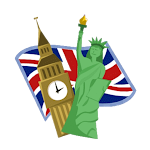Collective and Compound nouns in English
Collective and compound nouns are essential parts of English grammar that help us describe groups of things and create new meanings by combining words. In this lesson, you'll learn how to identify, use, and understand collective nouns, like 'team' or 'flock,' and compound nouns, like 'notebook' or 'mother-in-law.' Mastering these will improve both your writing and speaking skills.
COLLECTIVE NOUNS
Collective nouns are names for a group of individuals or a number of animals, places, things, objects, concepts or ideas, for example:
a clump of trees, a congregation of worshippers, a gang of thieves, a herd of elephants, a range or chain of mountains, a pack of cards, a board of directors.
Examples of collective nouns:
army, audience, band, board, cabinet, class, committee, crew, crowd, family, flock, gang, group, herd, hive, jury, majority, minority, public, society, staff, team ...
These nouns take a singular verb when we think of the group as an entity :
• The audience was enthusiastic.
• Our team is definitely the best.
• The jury is deliberating.
We can use a plural verb if we think of them as members of a group acting individually :
• The crew are all wearing their new uniform.
• After the match the team all shower and change.
COMPOUND NOUNS:
Compound nouns (or compound words) result from the merging of two words. These are very common in English and new combinations are invented almost every day.
Compound nouns normally consist of two or three parts, for example washing machine.
The second part (machine) identifies the object or person.
The first part (washing) tells us what sort of object or person it is, or what its purpose is.
The parts that compose a compound noun can be, for example :
• two nouns (chopstick, notebook, toothbrush, motorcycle)
• an adjective and a noun (greenhouse, blackboard, software, redhead)
• an adjective and a verb (dry-cleaning, public speaking)
• a noun and a verb (rainfall, sunshine, haircut)
• a verb and an adverb (drawback, takeover, countdown)
• an adverb and a verb (outbreak, overthrow, input)
• the gerund form of a verb (-ing) with a noun (washing machine, swimming pool)
Compound nouns are either written as :
• separate words (ex: orange juice, real estate, post office, car park, soap opera),
• words linked by a hyphen (mother-in-law, washing-up, shoe-polish, check-in)
• or one word (notebook, classroom, football, bedroom, haircut, password, raincoat, swimsuit, toothpaste, workshop).
It should be noted that compound nouns often have a meaning that is different from the two separate words. For example:
- a greenhouse (compound noun) is a place where we grow plants.
- a green house (adjective and noun) is simply a house painted green.
Practice Makes Perfect: Exercises on Collective and Compound Nouns


